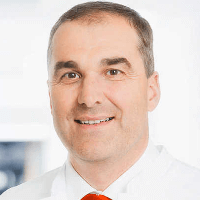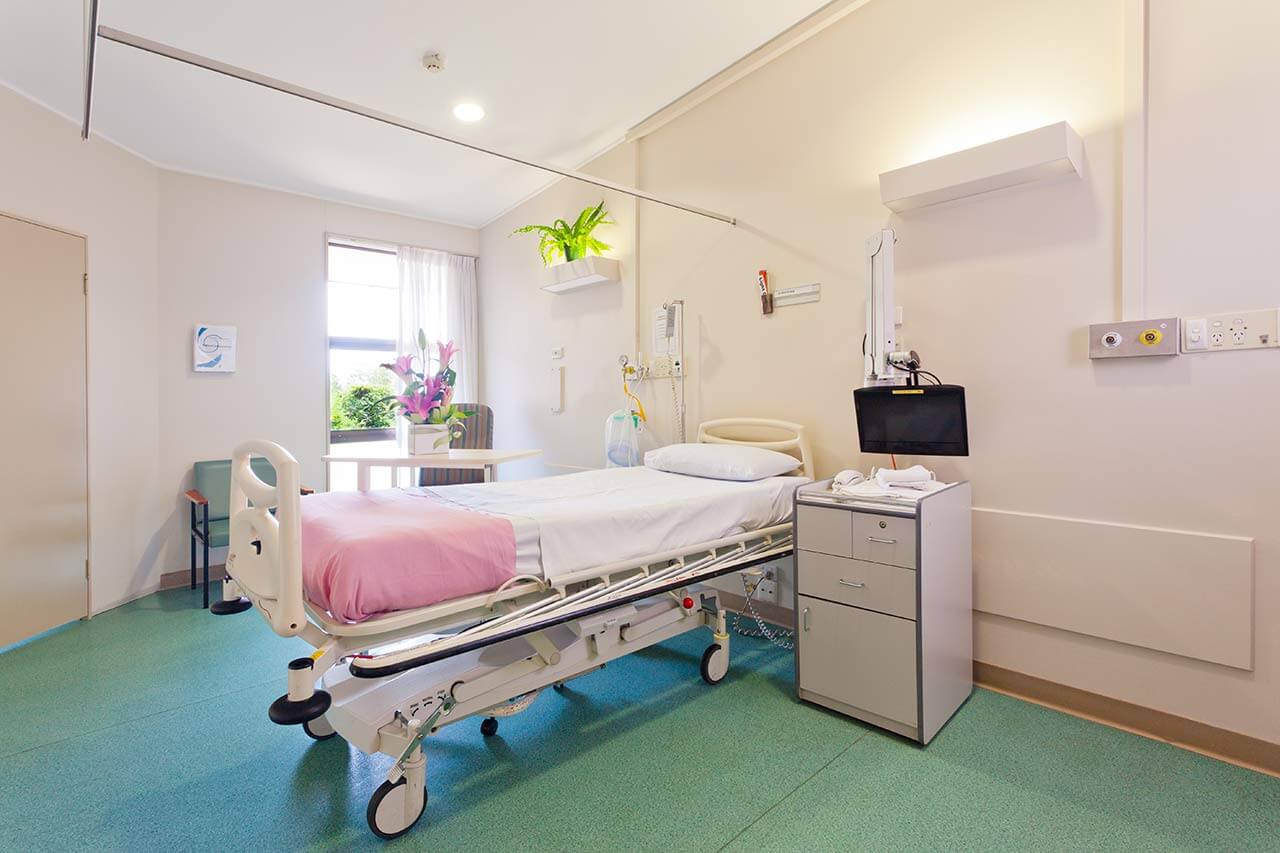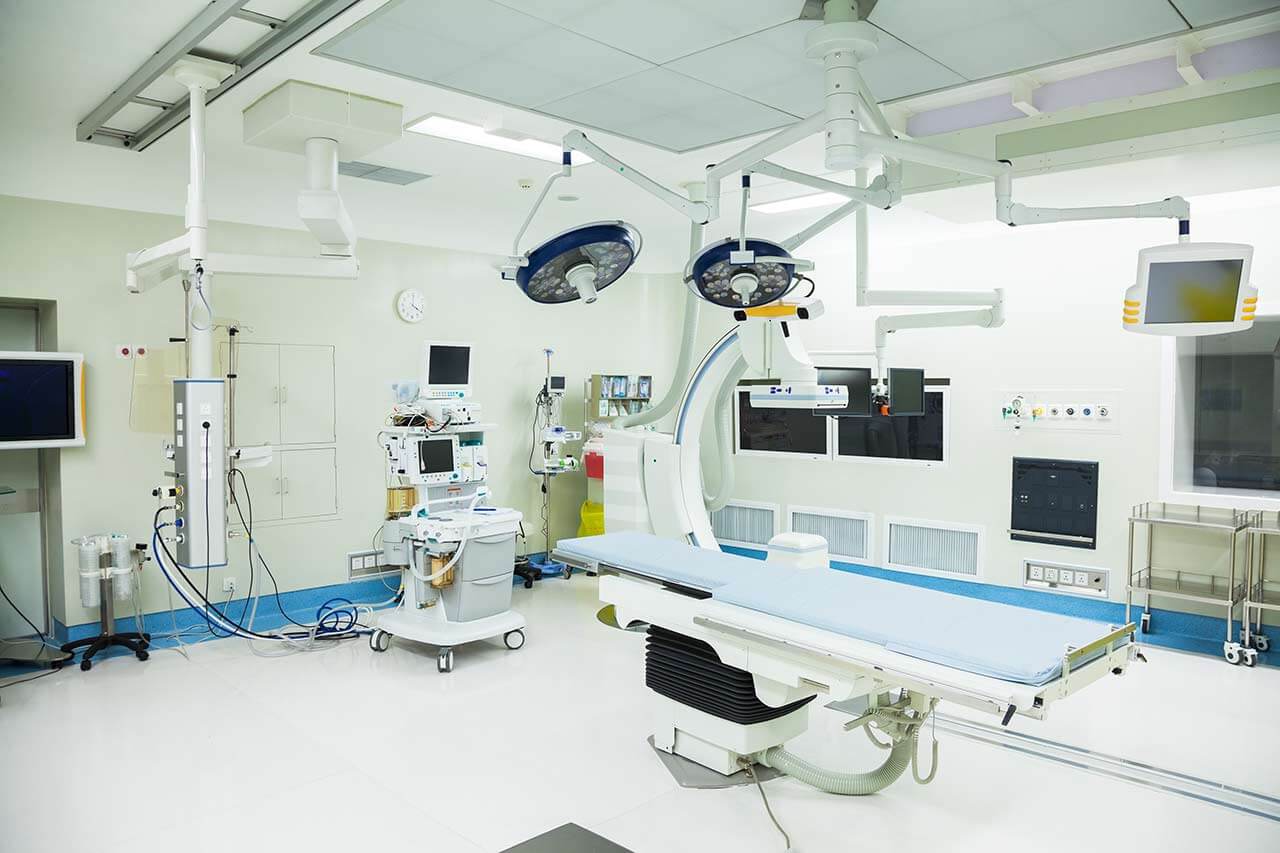
The program includes:
- Initial presentation in the clinic
- clinical history taking
- review of medical records
- physical examination
- laboratory tests:
- complete blood count
- biochemical analysis of blood
- thyroid function test (TSH-basal, fT3, fT4)
- mineral metabolism analysis (Na, K, Ca, Mg)
- lipid metabolism (HDL/LDL, cholesterol, triglycerides,
Lip(a), homocysteine) - iron content (ferritin, iron)
- blood coagulation analysis (aPTT, PT, INR)
- metabolic status (uric acid, total glucose, HbA1c)
- inflammatory parameters (CRP, ESR)
- cardiovascular disease risk markers
- lung function test (Spirometry)
- resting and exercise ECG
- Holter monitoring (24h)
- color doppler echocardiography
- transesophageal echocardiography (tee)
- color doppler sonography of cerebral vessels
- heart catheterization
- preparation according to preoperative standard
- coronary artery bypass surgery (CABG) and valve replacement
- symptomatic treatment
- control examinations
- the cost of essential medicines and materials
- nursing services
- full hospital accommodation
- explanation of future recommendations
- written statement
Required documents
- Medical records
- ECG (if available)
- Echocardiography (if available)
Service
You may also book:
 BookingHealth Price from:
BookingHealth Price from:
About the department
The Department of Cardiac Surgery at the Hospital Bogenhausen Munich offers the full range of modern surgical procedures for the treatment of cardiovascular diseases. The vast experience of the department's cardiac surgeons, as well as the high-tech medical base and the successful application of innovative therapeutic achievements contribute to the prestige of the medical facility both in Germany and abroad. The department performs a large number of operations using sparing minimally invasive techniques, without thoracotomy. Such operations are in no way inferior to classic open surgery in terms of their efficiency, but at the same time they avoid trauma to healthy tissues. The team of the department's cardiac surgeons cooperate closely with cardiologists, and therefore each clinical case is considered by the specialists cooperatively. More than 1,000 heart surgeries of various degrees of complexity are performed in the department's operating rooms annually. It should be noted that the department's specialists attach great importance to personal communication with patients and their support, since the upcoming heart surgery can often cause fear in patients. The department is headed by Prof. Dr. med. Walter Eichinger.
Coronary artery bypass grafting for stenosis and obstruction of coronary arteries is one of the priorities of the department's clinical activities. The department performs both classical coronary artery bypass grafting and modern modifications of this operation, such as off-pump coronary artery bypass grafting and minimally invasive direct coronary artery bypass grafting. Whenever possible, sparing surgical techniques are preferred. Minimally invasive direct coronary artery bypass grafting avoids thoracotomy, as it is performed through a surgical access of a few centimeters below the right nipple. Off-pump coronary artery bypass grafting can reduce the risk of lung function impairment and kidney dysfunction. The optimal surgical technique is selected for each patient individually according to the results of comprehensive diagnostics, after assessing the risks of a particular intervention and the predicted result of the operation.
The team of the department's cardiac surgeons also specializes in the surgical treatment of heart valve pathologies. The specialists successfully perform operations to replace the mitral and aortic valves with biological and mechanical prostheses, surgery to replace the aortic valve with a homograft, reconstructive surgery on heart valves and transcatheter aortic valve implantation (TAVI). The department's doctors always strive to preserve the patient's own heart valve, and therefore, if possible, they prefer reconstructive operations. The department has an excellent international reputation for aortic, mitral and tricuspid valve reconstruction. The interventions are usually performed using minimally invasive surgical techniques, which provide minimal pain and rapid postoperative recovery for the patient. If the heart valve is significantly damaged, the replacement surgery is performed. The department uses biological and mechanical prostheses in its clinical practice. If possible, cardiac surgeons prefer the implantation of biological valves, since when a mechanical valve is implanted, the patient will need to take anticoagulants for life. However, in younger patients, it is still preferable to use a mechanical prosthesis, since the biological prosthesis has a shorter service life and may require recurrent intervention for its replacement in the future.
The priority areas of work of the department's cardiac surgeons include the implantation of pacemakers and defibrillators in arrhythmias, endoscopic ablation of arrhythmogenic atrial foci in atrial fibrillation, aortic surgery, surgery to repair congenital heart defects in adults and interventions to remove heart tumors. All surgical procedures are performed in accordance with current clinical guidelines, which ensures their highest efficiency and safety.
The department's range of surgical services includes:
- Coronary artery bypass grafting for stenosis and occlusion of coronary arteries
- Classical coronary artery bypass grafting
- Off-pump coronary artery bypass grafting
- Minimally invasive direct coronary artery bypass grafting
- Surgery for heart valve replacement and reconstruction in case of their degeneration, calcification and inflammatory lesions, including operations using minimally invasive techniques
- Mitral and aortic valve replacement with biological and mechanical prostheses
- Minimally invasive aortic valve replacement
- Aortic valve replacement with a homograft
- Minimally invasive mitral valve replacement or reconstruction
- Aortic valve reconstruction (David and Jakub procedures)
- Tricuspid valve replacement or reconstruction
- Transcatheter aortic valve implantation (TAVI)
- Implantation of pacemakers and defibrillators in case of arrhythmias
- Surgical ablation of arrhythmogenic foci in atrial fibrillation
- Thoracic endoscopic minimally invasive ablation of arrhythmogenic foci in atrial fibrillation
- Surgical correction of congenital heart defects in adults
- Combined operations on the heart and carotid arteries
- Surgical removal of heart tumors
- Pulmonary artery surgery (for acute and chronic pulmonary embolism)
- Other cardiac surgeries
Curriculum vitae
After obtaining his Doctoral Degree at Ludwig Maximilian University of Munich, Prof. Walter Eichinger began his clinical activities at the Hospital Bogenhausen Munich, and in 1999 he also began his work at the German Heart Center Munich. In 2004, the specialist was appointed as Senior Physician at the German Heart Center Munich, and in 2007 as Managing Senior Physician. In the same period of time, he had his board certification in cardiac surgery. In 2009, Dr. Walter Eichinger became the Head of the Department of Cardiac Surgery at the Hospital Bogenhausen Munich.
Dr. Eichinger's clinical interest includes surgery for the reconstruction of heart valves (aortic, mitral and tricuspid). During internships abroad in Brussels and Toronto, the specialist mastered many innovative surgical techniques. Most of these techniques are minimally invasive. Prof. Walter Eichinger has extensive clinical experience in the surgical treatment of pathologies of the coronary vessels and aorta, congenital heart defects and heart failure (heart transplantation, artificial heart implantation).
The specialist's research activities are focused on the study of heart valve diseases. In 2005, Prof. Walter Eichinger became a lecturer at the Technical University of Munich. Thanks to numerous publications in prestigious specialized journals and active participation in international congresses, the doctor has earned a reputation as an International Expert in many areas of cardiac surgery. Prof. Eichinger is a member of the German Society for Thoracic and Cardiovascular Surgery (DGTHG).
Photo of the doctor: (c) München Klinik Bogenhausen
About hospital
According to the reputable Focus magazine, the Hospital Bogenhausen Munich ranks among the ten best medical centers in Bavaria and among the top 50 medical facilities in Germany!
The medical facility is the Academic Hospital of Ludwig Maximilian University of Munich. The modern hospital with the highest level of services annually provides treatment to more than 85,000 patients with clinical cases of varying severity. With 1,000 beds, the hospital is the largest medical complex in the region. It provides both inpatient and outpatient treatment. In addition, the hospital has a 24-hour emergency service. The hospital's medical team consisting of highly qualified doctors and nursing staff focuses on tailored medical care, since they are convinced that every patient and his clinical case is unique. All employees of the hospital strive not only to provide the most effective treatment to the patient, but also to make his hospital stay as comfortable as possible. The work of doctors is based on respect and humane attitude towards their patients.
The hospital includes 18 specialized departments. Each department is responsible for the treatment of a particular group of diseases. The hospital is distinguished by outstanding successes in the treatment of diseases of the cardiovascular system, lungs and airways, gastrointestinal tract, musculoskeletal system, nervous system and metabolic disorders. Of particular interest is the treatment of cancers, which is provided on the basis of the Cancer Center certified in accordance with the standards of the German Cancer Society. The doctors of the hospital have a large arsenal of innovative treatment methods available only in the leading medical centers in Europe.
The high level of medical care is confirmed by the prestigious certificates of professional german medical societies. These are certificates of the German Cancer Society in the treatment of colon, pancreatic and esophageal cancers, a certificate of the German Cardiac Society, a certificate of the German Trauma Society, a certificate of the German Stroke Society and others.
The hospital has excellent conditions for the provision of comprehensive medical care. Long clinical experience of doctors in combination with high-tech medical equipment allows the specialist to work miracles, curing severe diseases, which doctors from other hospitals cannot cope with. The specialists of the hospital take care of both the physical health of patients and their emotional state, devoting enough time to personal communication. The efforts of the medical team are aimed at providing the patient with the most effective treatment and at completу cure of pathology, if possible.
Photo: (с) depositphotos
Accommodation in hospital
Patients rooms
The patients of the Hospital Bogenhausen Munich live in comfortable and cozy rooms with light colors. The hospital offers accommodation in single and double patient rooms. Each patient room has an ensuite bathroom with shower and toilet. The hospital also has patient rooms specially equipped for disabled people. The standard patient rooms include an automatically adjustable bed, a bedside table, a wardrobe, a table and chairs for receiving visitors. The patient rooms have Wi-Fi.
The hospital also offers enhanced-comfort patient rooms with a safe, a mini fridge and upholstered furniture.
The hospital has a library with many interesting books, magazines, CDs and DVDs. For the convenience of patients, the hospital also houses a small shop, a hairdresser and a cafe on its territory.
Meals and Menus
The patient and the accompanying person are offered tasty and healthy three meals a day. The diet is quite varied. Only fresh and high-quality products are used when cooking. Breakfast and dinner are usually served buffet style, while for lunch one can choose from three menus, including a dietary one.
If you are on a specific diet for some reason, you will be offered an individual menu. Please inform the medical staff about your dietary preferences prior to the treatment.
Further details
Standard rooms include:
Religion
The religious services are available upon request.
Accompanying person
During the inpatient program, the accompanying person can live with the patient in a patient room or a hotel of his choice. Our managers will help you choose the most suitable option.
Hotel
During the outpatient program, the patient can stay at the hotel of his choice. Our managers will help you choose the most suitable option.




